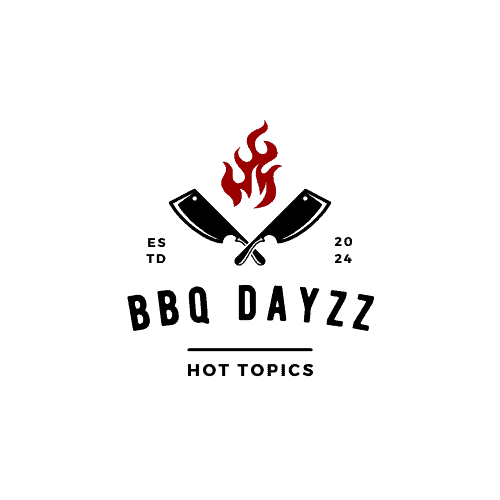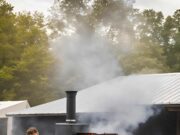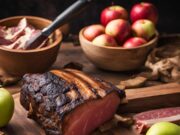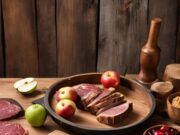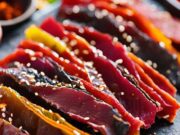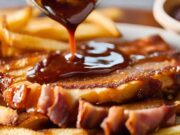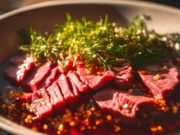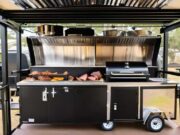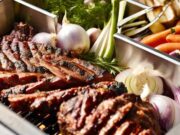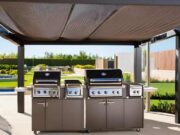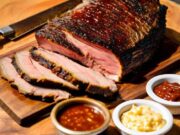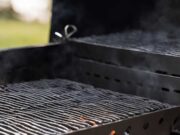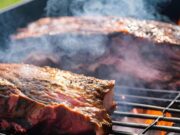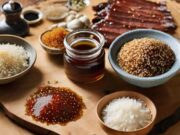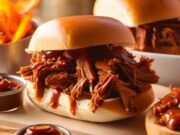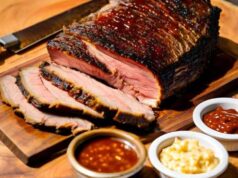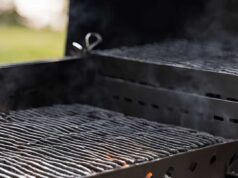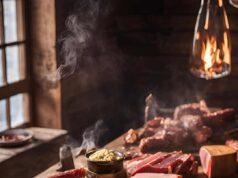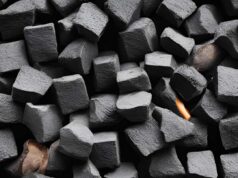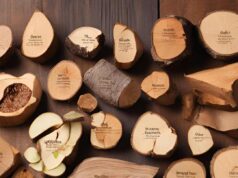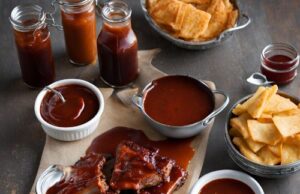When it comes to grilling, the type of charcoal you choose can significantly influence the flavor, heat, and overall experience of your barbecue.
With two primary options—lump charcoal and briquettes—understanding their differences is crucial for any barbecue enthusiast.
This guide examines the unique characteristics, advantages, and drawbacks of each option, assisting you in determining which is best suited for your grilling needs.
From heat output to flavor impact, consider all the factors to enhance your barbecue experience.
Key Takeaways:
- Consider your desired flavor impact and level of convenience when choosing between lump charcoal and briquettes for BBQ.
- Briquettes are more affordable and offer more consistent temperature control, while lump charcoal burns hotter and faster.
- Mixing lump charcoal and briquettes is possible, but may affect temperature control and flavor. Choose one type for optimal results.
Lump Charcoal vs. Briquettes: Which Should You Use for BBQ?
In terms of mastering the art of BBQ, understanding the difference between lump charcoal and briquettes is essential for achieving that perfect smoky flavor and maintaining optimal temperature control during your grilling session. Each type has its distinct characteristics, advantages, and disadvantages that can significantly influence your cooking experience.
From the quality and burn time to the flavor profiles offered by various brands like Kingsford and Jealous Devil, making the right choice will not only enhance your grilling results but also align with your personal preferences as a BBQ enthusiast. It is crucial to thoroughly comprehend these factors to elevate your outdoor cooking skills, whether you are a novice or a seasoned professional.
Importance of Choosing the Right Charcoal
Selecting the right charcoal is essential for BBQ enthusiasts, as it directly impacts the flavor and quality of the food being cooked, as well as the overall grilling experience.
The choice between lump charcoal and briquettes is not one to be taken lightly, as each type possesses distinct properties that influence cooking temperature, burn time, and ultimately, the quality of the finished meal. If you aim to achieve an authentic smoky flavor with a quick temperature rise for searing, lump charcoal is often the preferred option, as it burns hotter and faster. On the other hand, briquettes provide consistent heat over a longer duration, making them ideal for slow-cooked BBQ methods.
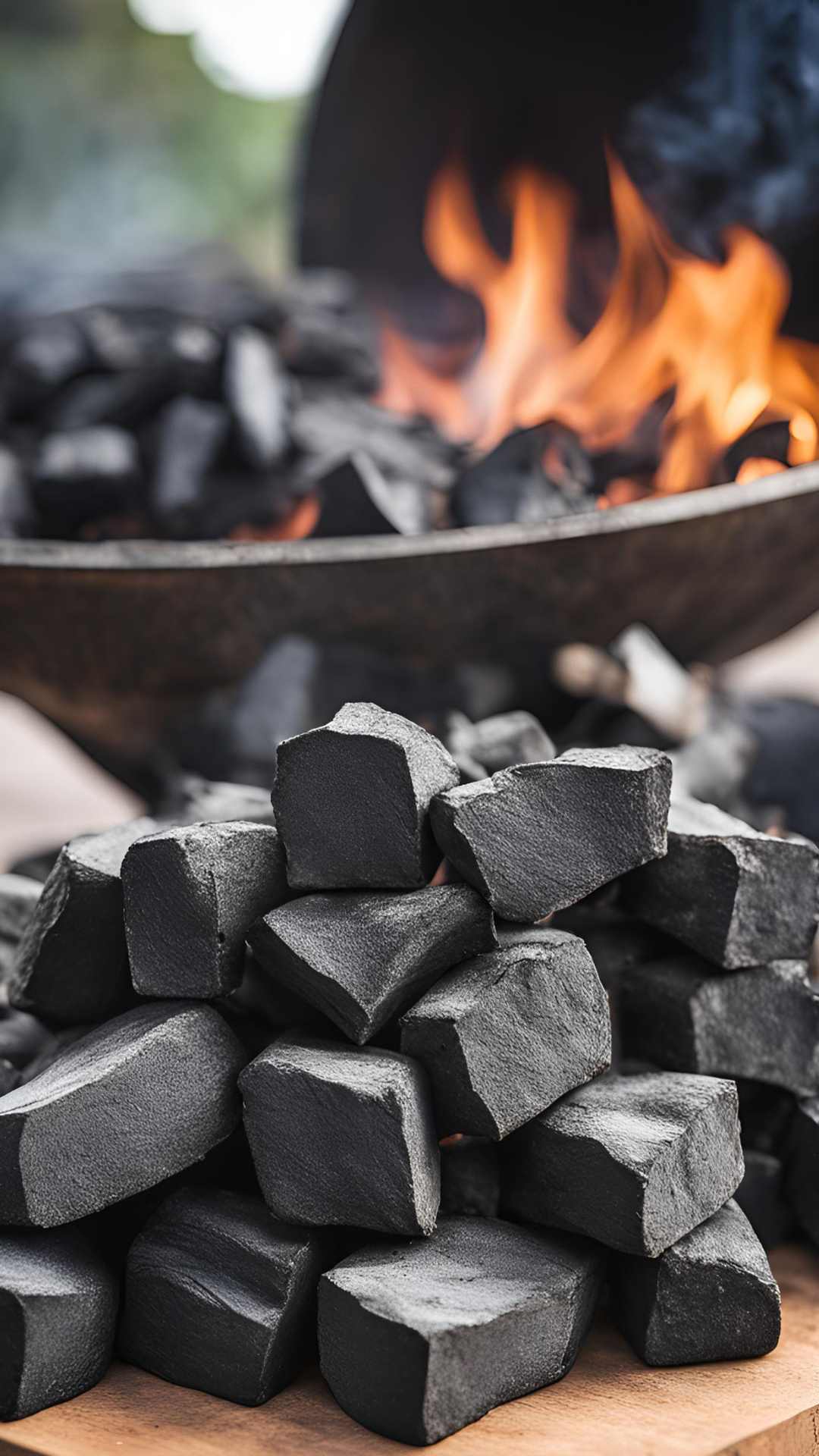
Understanding these nuances enables you to align with specific cooking techniques and gain better control over the smoking process. When making your selection, consider your cooking style; for grilling steaks, opt for lump charcoal, whereas for longer cooks like brisket, briquettes may be more suitable. Additionally, ensure that you store your charcoal in a dry place to guarantee optimal performance each time you light up the grill.
What is Lump Charcoal?
Lump charcoal is a natural form of charcoal created from whole pieces of wood that undergo pyrolysis, a process in which the wood is burned in the absence of oxygen. This method results in a cleaner-burning product, which is favored by many BBQ enthusiasts for its capacity to achieve high temperatures and deliver an authentic wood flavor.
Characteristics of Lump Charcoal
Lump charcoal is distinguished by its irregular shapes and sizes, which can vary considerably, offering both a unique aesthetic and diverse burning characteristics. This variability is essential for its performance during grilling and smoking.
In contrast to uniform briquettes, lump charcoal is typically composed of larger, solid pieces of hardwood, resulting in a hotter and cleaner burn. Its consistent combustion allows for improved temperature control during extended cooking sessions, making it an excellent choice for those who prioritize precision in their grilling.
Opting for a high-quality brand ensures that the pieces are larger and denser, which contributes to a longer burn time and reduced ash production. Ultimately, these qualities enhance the flavor profile of grilled meats, providing barbecue enthusiasts with an advantage in achieving that sought-after smoky taste.
Advantages of Using Lump Charcoal
One of the key advantages of using lump charcoal is its ability to ignite quickly and reach higher temperatures, making it an excellent choice for grilling steaks and other meats that require a good sear. This characteristic not only saves you time but also enhances your overall cooking experience, allowing you to fire up your grill with minimal waiting.
Lump charcoal not only burns hotter but also burns cleaner than briquettes, which reduces ash production and provides you with a less obstructed view of your cooking. Additionally, it imparts a unique flavor to grilled foods, adding a smokiness that gas grills often cannot replicate.
These benefits make lump charcoal a versatile choice, suitable for various cooking methods, from low-and-slow smoking to high-temperature grilling, catering to both casual cooks and barbecue enthusiasts alike.
What are Charcoal Briquettes?
Charcoal briquettes are produced from compressed charcoal dust combined with various additives, such as fillers and binders. These components ensure that the briquettes maintain a uniform shape and burn steadily.
This makes them a favored option for barbecue enthusiasts who prioritize convenience and ease of use in their grilling experience.
Characteristics of Charcoal Briquettes
Charcoal briquettes are designed to be uniform in size and shape, facilitating consistent burning and temperature control during the grilling process.
This uniformity is essential for grillers who desire even heat distribution while cooking, as it ensures that each briquette ignites and burns at a similar rate. Consequently, you can enjoy longer cooking sessions without the need for constant adjustments, making it easier to maintain your desired cooking temperature.
The extended burn time provided by briquettes enhances flavor development in meats and vegetables, ultimately enriching the overall culinary experience. This predictability in performance not only simplifies the grilling process but also allows you to experiment confidently with various recipes, assured that your heat source will deliver reliable results.
Advantages of Using Charcoal Briquettes
One of the primary advantages of charcoal briquettes is their affordability compared to lump charcoal, making them an accessible option for both casual grillers and BBQ enthusiasts.
This cost-effectiveness does not compromise performance, as briquettes are specifically formulated for a longer burn time. This allows you to enjoy your cooking without the constant need to replenish fuel.
For those who are new to grilling or prefer a more relaxed experience, the ease of use that comes with charcoal briquettes enhances their appeal. They ignite reliably and burn steadily, providing a consistent heat that is particularly beneficial for beginners as they learn the nuances of grilling techniques.
Whether you are hosting a weekend cookout or simply experimenting with flavors, these features ensure that the focus remains on the food rather than the fuel.
Lump Charcoal vs. Briquettes: Key Differences
Understanding the key differences between lump charcoal and briquettes enables you to make informed decisions regarding your charcoal selection. Each type possesses distinct characteristics that can significantly influence flavor, burn time, and temperature control throughout the cooking process.
Heat Output and Temperature Control
One of the most significant aspects of BBQ is heat output and temperature control, which varies considerably between lump charcoal and briquettes. This variation directly impacts how you cook your food.
Lump charcoal, due to its natural composition, ignites quickly and produces a high initial heat, making it ideal for searing meats. However, it also burns hotter and faster, necessitating more frequent adjustments to maintain the desired temperatures. In contrast, briquettes provide a steadier burn and longer cooking duration, making them preferable for low-and-slow techniques, such as smoking.
For example, when grilling a steak, you may choose lump charcoal to achieve that perfect seared crust. On the other hand, if you are a ribs enthusiast, briquettes might be your best bet to ensure the meat cooks evenly over an extended period. Understanding these differences allows you to optimize your grilling techniques and achieve better cooking results.
Burn Time and Longevity
Burn time and longevity are critical factors in determining the efficiency of your BBQ sessions. Generally, briquettes offer a longer and steadier burn compared to lump charcoal.
These characteristics position briquettes as the preferred choice for pitmasters who frequently host lengthy cooking events or cookouts. Unlike lump charcoal, which ignites quickly and burns intensely for a shorter duration, briquettes provide a more controlled and consistent heat output. This consistency enables better temperature management over extended periods.
This reliability is particularly important during longer BBQ gatherings, where maintaining a steady temperature can make all the difference between perfectly cooked meats and unevenly cooked dishes. Thus, understanding how these options influence cooking dynamics can significantly enhance your overall BBQ experience.
Flavor Impact on Food
The flavor imparted to food during grilling is often one of the primary considerations for BBQ enthusiasts, as lump charcoal typically provides a more pronounced smoky flavor compared to the milder taste of briquettes.
This distinction plays a crucial role in selecting the appropriate cooking method for various types of foods. For example, meats such as steaks, ribs, and chicken can truly benefit from the robust, intense flavors that lump charcoal offers, enhancing the rich, deep notes during the caramelization process.
In contrast, briquettes, which are usually made with additives, produce a steadier heat and are ideal for foods like burgers and sausages, where a subtle flavor is preferred to enhance rather than overpower the natural taste.
Understanding these differences can lead to more delicious outcomes, ultimately elevating your overall grilling experience.
Ease of Use and Convenience
Ease of use and convenience are critical aspects for many BBQ enthusiasts. Charcoal briquettes are often preferred due to their consistent burn and straightforward lighting methods, especially when compared to lump charcoal, which may require more skill to manage effectively.
In the realm of grilling, both novice and seasoned grillers appreciate products that streamline the process, and briquettes consistently emerge as the favored choice. Designed for uniformity, briquettes typically ignite quickly and retain heat for an extended period, allowing cooks to focus on seasoning and preparing their favorite dishes without the distraction of temperature fluctuations.
Conversely, lump charcoal may necessitate more preparation, including specific lighting techniques and additional time to reach an optimal cooking temperature. This may not be appealing to those who prioritize a hassle-free grilling experience. Ultimately, the decision between these two types of charcoal often depends on the level of convenience desired during the grilling process.
Expert Opinions on Lump Charcoal and Briquettes
Expert opinions on lump charcoal and briquettes offer valuable insights to help you determine the best option for your grilling needs. Renowned BBQ authorities such as Meathead Goldwyn and James Llorens provide their recommendations based on years of experience and experimentation, ensuring that you have access to informed guidance in your decision-making process.
What do BBQ Experts Recommend?
BBQ experts frequently exhibit strong preferences when it comes to selecting between lump charcoal and briquettes, with many advocating for lump charcoal due to its superior flavor and heat control capabilities.
Professionals such as Meathead Goldwyn of AmazingRibs.com highlight that lump charcoal burns hotter and cleaner, producing less ash, which enhances airflow in the grill. He notes, “Lump charcoal often provides a better tasting smoke, especially for dishes like ribs and brisket that benefit from a cleaner, purer combustion.”
In contrast, others within the BBQ community favor briquettes for their consistency and longer burn times. Ultimately, the choice often depends on the type of cooking you intend to pursue; many seasoned grillers recognize that understanding the unique characteristics of both fuels can lead to impressive results on the grill.
Common Misconceptions about Charcoal Types
There are several common misconceptions regarding types of charcoal, particularly concerning the ease of use, flavor, and performance of lump charcoal versus briquettes. These misunderstandings can mislead novice grillers in their charcoal selection.
Often, these misconceptions stem from generalized assumptions rather than firsthand experience, causing some individuals to overlook the unique benefits each option can provide. For instance, many believe that lump charcoal is overly difficult to manage; however, it actually ignites more quickly and burns hotter, offering an intense flavor that can enhance grilled dishes. Conversely, briquettes are frequently dismissed as inferior, yet they are designed for consistency and extended cooking times, making them ideal for longer grilling sessions.
Such beliefs can ultimately shape grilling habits and lead to uninspired meals or frustrating experiences. Therefore, it is crucial for grill enthusiasts to educate themselves about these charcoal types in order to make informed decisions that enhance their grilling endeavors.
Factors to Consider When Choosing
When deciding between lump charcoal and briquettes, it is essential to consider several factors, including your cooking method, desired flavor, burn time, and ease of use, as these elements can significantly influence your grilling experience.
Understanding the nuances of these options will allow you to tailor the grilling process to your personal preferences and culinary goals. For instance, if you value quick start-up times and straightforward lighting, you may find that briquettes, which often contain additives for easier ignition, are more appealing.
Conversely, if you are focused on achieving authentic smoky flavors, lump charcoal, made from hardwood and known for burning cleaner, may enhance the taste of your grilled foods.
Your cooking method is also paramount; high-heat searing may benefit from the intense flames produced by lump charcoal, while longer, slower cooking processes could be better suited for the steady, even heat provided by briquettes.
Ultimately, evaluating these factors in relation to your specific grilling needs will help you determine the optimal choice.
Final Thoughts on Lump Charcoal vs. Briquettes
Both lump charcoal and briquettes offer unique benefits that cater to various BBQ preferences, and understanding these differences can assist you in selecting the best option for your cooking style.
Lump charcoal typically burns hotter and faster, making it ideal for those who prefer high-heat grilling and desire a quick sear on their meat. However, it does require more frequent replenishing during longer cooking sessions. In contrast, briquettes provide a steadier and longer-lasting heat, which is perfect for low-and-slow cooking, although they may contain additives that can impact flavor.
Reflecting on your past grilling experiences can guide you in making a more informed choice. Do you prioritize rapid cooking or a prolonged, steady warmth? Ultimately, the decision will depend on what you value most in your BBQ experience.
Frequently Asked Questions
This section addresses frequently asked questions regarding lump charcoal and briquettes, providing clear answers to help clarify common queries among BBQ enthusiasts.
Can You Mix Lump Charcoal and Briquettes?
Many BBQ enthusiasts often contemplate whether mixing lump charcoal and briquettes is a beneficial approach, as each type offers distinct advantages that can complement one another during the grilling process.
By incorporating both lump charcoal and briquettes, you can take advantage of the quick ignition and high heat output provided by lump charcoal, along with the consistent burn and longer duration offered by briquettes. This combination enables you to achieve more precise temperature control, allowing for adaptation to various cooking methods while also providing a unique opportunity to enhance the flavor profile of your grilled foods.
However, there are some drawbacks to consider; the inconsistent sizes of lump charcoal may lead to uneven heat distribution, and if not managed properly, the flavor imparted by briquettes can overpower the natural smokiness that lump charcoal provides. Understanding these dynamics can significantly enhance your overall grilling experience. Learn more about Lump Charcoal vs. Briquettes
What is the Cost Difference?
Understanding the cost difference between lump charcoal and briquettes is crucial for budget-conscious grillers, as briquettes generally provide a more economical option compared to the often higher-priced lump charcoal.
While the initial pricing of briquettes may appeal to those seeking to maximize their spending efficiency, the decision should not be based solely on upfront costs. Factors such as burn time, heat consistency, and the flavor imparted to food can significantly affect long-term value. For instance, although lump charcoal typically has a higher price per pound, its superior burn efficiency and natural composition may result in fewer replenishments during a grilling session.
Consequently, informed consumers often evaluate both purchase price and performance metrics, understanding that the best value does not always stem from the cheapest option. Ultimately, grasping these nuances enables grillers to make well-informed decisions that align with their cooking style and budget.
Which is Better for Smoking?
In terms of smoking, you may find yourself debating whether lump charcoal or briquettes are superior for achieving that desired smoky flavor in your food. This discussion often arises from the distinct characteristics of each type of charcoal and their impact on the overall smoking process.
Lump charcoal is recognized for its ability to burn hotter and cleaner, resulting in less ash production and a flavor profile that enhances the natural taste of the meat. In contrast, briquettes, with their uniform shape and longer burning time, can provide more consistent heat, which is advantageous for longer smoking sessions.
By understanding the nuances of how each type contributes to flavor, heat retention, and smoke production, you can make informed choices that align with your personal preferences and cooking style.
Additional Resources
To enhance your BBQ skills and knowledge, you will find a compilation of additional resources that cover effective charcoal usage tips as well as recommended accessories for charcoal grilling.
Tips for Using Charcoal Effectively
Effective charcoal usage is essential for successful grilling, and implementing a few practical tips can help ensure an enjoyable BBQ experience.
Mastering the art of using both lump charcoal and briquettes can significantly elevate your grilling skills. To start, it is crucial to choose high-quality products that ignite easily and burn consistently. For lump charcoal, which ignites more quickly and reaches higher temperatures, consider using a chimney starter to achieve even heat distribution without relying on chemical lighter fluid. Conversely, when utilizing briquettes, arrange them in a pyramid formation to optimize airflow, which facilitates quicker and more efficient ignition.
Always ensure that you grill in a well-ventilated area and keep a spray bottle of water nearby for added safety. By following these strategies, you can enhance your grilling results while creating a safer cooking environment.
Recommended Accessories for Charcoal Grilling
Equipping yourself with the right accessories for charcoal grilling can greatly enhance your BBQ experience, simplifying the management of heat, flavor, and cooking precision.
Among the essential items to consider are charcoal chimneys, which assist in the lighting process by allowing coals to heat evenly and quickly, resulting in a more consistent cooking temperature. Additionally, heat-resistant gloves are invaluable, as they protect your hands from burns while handling hot grates or adjusting charcoal.
Investing in quality grilling tools, such as spatulas, tongs, and brushes, not only makes flipping and serving more efficient but also helps maintain the integrity of your food without causing damage. These accessories streamline the grilling process and ensure a safe and enjoyable outdoor cooking experience, enabling you to focus on perfecting your flavors.
Frequently Asked Questions
What is the difference between lump charcoal and briquettes?
Lump charcoal is made from natural wood, while briquettes are made from compressed sawdust and other additives.
Which burns hotter, lump charcoal or briquettes?
Generally, lump charcoal burns hotter and faster than briquettes due to its natural composition.
What is the best option for smoking meats?
For smoking meats, lump charcoal is often preferred as it produces a more intense and smoky flavor.
Can briquettes be used in place of lump charcoal?
Yes, briquettes can be used in place of lump charcoal, but they may not provide the same level of heat and flavor.
Are briquettes more cost-effective than lump charcoal?
Yes, briquettes are often more affordable than lump charcoal, but they also tend to burn for a shorter period of time.
Which is better for the environment, lump charcoal or briquettes?
Lump charcoal is generally considered more environmentally friendly as it is made from natural materials without added chemicals or binders.

